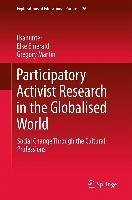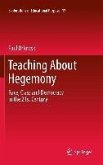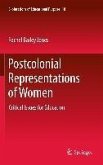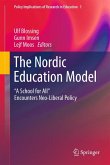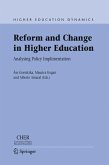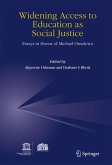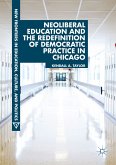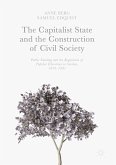Locating and contextualizing the history and theory of action research, critical theory and other related methodologies and concepts, this volume takes the reader on a journey that begins with the formation of a question, puzzle or research idea right through to the publication of a report on your finished project. Including discrete sections on every stage in the process, from generating a social justice activism agenda, through forming a team and empowering participants, to ensuring the implementation of your agenda and publishing and disseminating your work. Engaging their readers with a fresh acronym, PAtR-Participatory Activist Research-the authors give fresh impetus to those looking for a systematic way to understand and shape practice in their daily work, their profession and their world.
Dieser Download kann aus rechtlichen Gründen nur mit Rechnungsadresse in A, B, BG, CY, CZ, D, DK, EW, E, FIN, F, GR, HR, H, IRL, I, LT, L, LR, M, NL, PL, P, R, S, SLO, SK ausgeliefert werden.
I love this manuscript. As I was packing a car filled with tents and sleeping bags, food and money for Occupy protestors on Wall Street, I received lisahunter's email asking me to review the book. This text is the perfect cup of activist tea for critical researchers and activist professionals haunted by the question of how to "be of use," as we engage with, and pick up the pieces of lives shrewn about by grotesque inequality gaps in these revolting times. PAtR takes on both definitions of revolting. Theoretically Participatory Activist Research is positioned critically in relation to histories and practices of oppression, dispossession and structural violence that are, indeed, revolting; politically, at the same time, Participatory Activist Research floats on the winds of protest that dot the globe, incited by the 99% who insist on a different tomorrow.
The volume offers a queer geneology on the history and praxis of critical participatory work that is at core critical, activist, and folded into professional identities. The authors write as they would expect a PAR project to unravel -- they democratize knowledge, offer clear definitions which then get muddy, and hold the hands of the novice researcher, asking him/her only to be true to their activist passions, to design research for justice, to resist the pull toward the technical practices that reproduce, and solidify, injustice.
Holding at once critical theory and activist praxis, these writers have crafted a book that seduces readers into PAR for beginners; the book itself is a PAR process of exploration, reflect, action and more reflection. With graphic organizers and clarifying questions they seek radical transparency and resist the curricular recipes of accountability regimes.
In language that is accessible and inviting, the text is fueled by the fire of social critique; the energy and exhaustion of collective engagement; the deliberate dethroning of expertise; the surprise of new solidarities and new findings. The text is, further, imbued with a sweet manifesto on the responsibilities of activist professionals; the need for cross sector solidarity; the invigoration of cultural work, with allies, for justice.
Peter McLaren, Professor, School of Critical Studies in Education, University of Auckland.
This is an outstanding book that represents a critical research process sorely needed in the academy today. Any researcher interested in making an intervention into the egregious social conditions wrought by neoliberal capitalism would do well to read this book. An important contribution to the literature on research methodology.
Richard Tinning, Professor of Pedagogy & Physical Education, The University of Queensland, Australia.
As the screws of new liberal thinking and policy tighten on the helping professions, the boundaries between Left and Right are increasingly being blurred, the spaces to find support from like-minded (and spirited) colleagues seem to be diminishing. Resistance seems futile against the juggernaut of performativity and evidence-based practice (of the measured kind). Opportunities for public solidarity are limited and we are forced further into individualist oriented practices.
Enter Participatory Activist Research (PAtR). This form of Action Research with its roots in critical theory has empowerment possibilities for participants. PAtR is collaborative in nature and through considerable ongoing dialogue between participants it is possible to achieve a level of trust and mutual support that can facilitate praxis as informed, committed action.
Activists have to stick their heads up over the parapet (not merely above the pulpit!). But it is dangerous to do so. It takes passion, belief and a certain lack of self-regard for one's safety. However, as the authors of Participatory Activist Research reveal, there are examples of praxis and empowerment from across the range of helping professions and these examples can serve to give us hope. Hope for professional renewal in the face of an arid audit culture and hope for a more informed collectivist future.
Noeline Alcorn, Emeritus Professor, Wilf Malcolm Institute of Educational Research, The University of Waikato, Aotearoa New Zealand
This book will be a valuable resource for emerging researchers in the field. Situated clearly and unambiguously in anactivist social justice framework, it discusses a range of theoretical, philosophical and practical issues and examples. Far more than a "how-to" text it nevertheless provides succinct, step-by-step guidance while never deviating from its critical stance. It speaks directly to its readers and is a book for researchers will return to often. It deserves a wide readership

